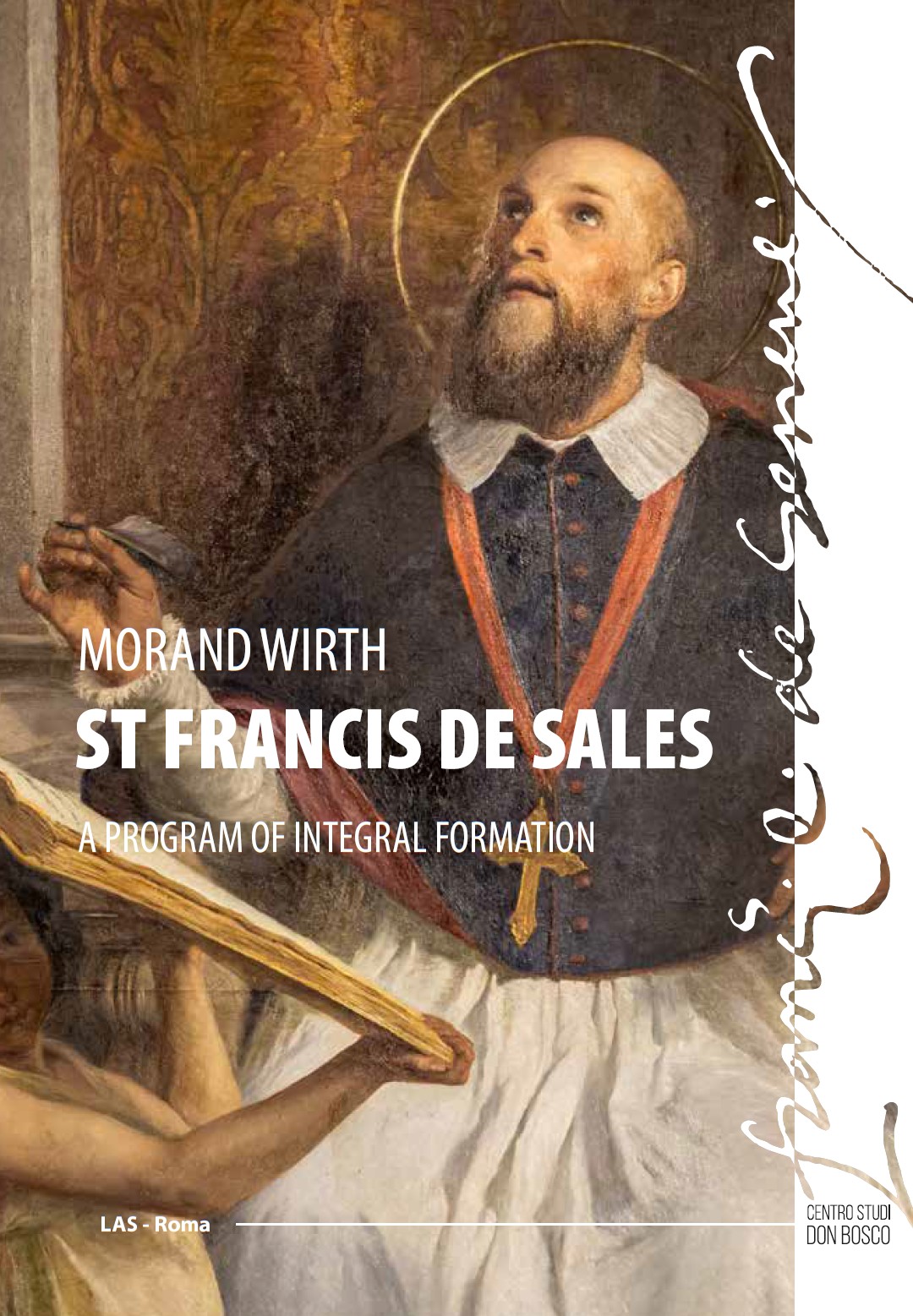In the wake of Renaissance humanism, St Francis de Sales developed a pastoral rather than theoretical program of education and integral formation of the person. Every human being is called to perfect themself in all their dimensions as an individual: the bodily senses, the passions and affections of the soul, the spiritual faculties of memory and intellect, and especially the heart, the seat of the will and freedom.
As someone immersed in society, St Francis de Sales shows himself to be attentive to the promotion of the dignity of each individual be it in the family, in social relationships, at work, in leisure time or in the service of country. Finally, St Francis de Sales cannot think of the person without an openness to transcendence. His program is original in this area too: he has a positive image of a God who attracts the human being while respecting our freedom; the devotion he promotes is a “civil devotion”; moreover, the love of God is to be lived in daily life, while love of one’s neighbour is characterised by “gentleness”, the flower of charity. St Francis de Sales program is an antidote against a one-dimensional formation that neglects the multiple resources of human nature
Translation and Typesetting: Direzione Generale Opere Don Bosco in collaboration with Australia-Pacific and Korea Province
Content:
PRESENTATION
HISTORICAL INTRODUCTION
Part One: FORMATION OF THE PERSON
1. EDUCATING AND FORMING
A duty to be done with love
Elements of child psychology
Sense of purpose in education
Beginning from the heart
Commanding, advising, inspiring
Correcting
Gradual education
2. THE BODY WITH ALL ITS SENSES
Salesian realism
Close link between body and soul
Love and control over the body
Educating our senses
The eyes and ears
The other senses
The body and spiritual life
3. THE SOUL WITH ALL ITS PASSIONS
The passions are the vibrations of the soul
I am as human as anyone could possibly be
Pleasure and aggression
The twelve passions of the soul
The role of images and the imagination
A difficult ideal to achieve: a constant mood
4. THE MIND WITH ITS FACULTIES
Reason, divine torch
The eye of the rational soul
Cultivating our intelligence
The memory and its storerooms
We need to have a well-balanced and reasonable mind
5. THE HEART: WILL, LOVE AND FREEDOM
The will, the master faculty
The affections that move the will
Love, the first and foremost affection
Inner struggle and the choices of freedom
The fruits of the will are our good resolutions
Fortifying and motivating the heart
6. EDUCATING YOUNG WOMEN
Francis de Sales and the women of his time
Educating young wome
Instruction and preparation for life
Education to love
Making a choice in life
Women and devotion
Part Two: THE PERSON IN SOCIETY
7. THE DIGNITY OF EVERY PERSON
Know the dignity of the human being
Freedom is the most valuable part of the person
Conscience and responsibility
Respect and self love
The respect due to others
The Salesian “unidiverse”
8. MARRIAGE AND THE FAMILY
Marriage is a vocation
Love in marriage
Marriage is a school
Parents, cooperators with God
The child, the living image of its parents
Family union
9. SOCIAL RELATIONSHIPS
Civility
Ways of dressing
Good behaviour
Conversations
Salesian gentleness
Friendships
10. WORK AND SOLIDARITY
Preparation for an active life
The dignity of work
Work carefully and diligently, but without fatigue or anxiety
Encouraging the country’s economy
Solidarity with the poor
11. REST AND LEISURE TIME
Fresh air, walking, hunting
Games of skill
Dancing and balls
Society games
Cultural amusements
Feasts, banquets, dressing up
Happy and friendly conversations
Salesian humour
12. THE IDEAL OF THE GOOD CITIZEN
Loving and serving your country
Overcoming certain social barriers
When justice is wronged
Francis de Sales “the European”
Citizen of the world
Part Three: OPENING TO TRANSCENDENCE
13. THE HUMAN AND THE DIVINE
A question of happiness
Reason and faith
Virtues of the pagans
Affinity between God and man
A pedagogy of faith
Youth and God
14. AN IMAGE OF A POSITIVE GOD
God is good
Providence
A God who draws us to himself, respecting our freedom
Human beings are God’s cooperators
A God who is passionate about communication
Fear and love
And the devil?
An educator God who “anticipates” the human being
15. DEVOUT LIFE IN THE WORLD
True and false devotion
Religion within everyone’s reach
Intelligent and discreet devotion
Choosing proper models
The need to follow the laws of the world
Witnesses to Christian joy
16. LOVE OF GOD IN EVERYDAY LIFE
Choosing one’s spirituality
The need to flourish where God has planted us
The daily practice of virtue
Encountering God in everyday events
Combining prayer and life
Daily life transfigured
17. LOVE OF NEIGHBOUR
Why love our neighbour?
How do we practise love of neighbour?
Gentleness, the flower of charity
Showing love
Love up to what point?
CONCLUSION
The essential role of education
Choosing preventive education
In an attitude of trust and joy
BIBLIOGRAPHY
1. Works of Francis de Sales
2. Translations and Salesian studies in Italian
3. Salesian studies
4. Studies of a general nature
5. Relationship between St Francis de Sales and Don Bosco
6. Translations in English
Reference time period: 1700 – 2022
Morand Wirth, Saint Francis de Sales. A Program of Integral Formation. (= Pubblicazioni del Centro Studi Don Bosco, Studi e Strumenti 5), LAS, Rome 2022.
Reference institution:
Centro Studi Don Bosco

Direzione Generale SDB









